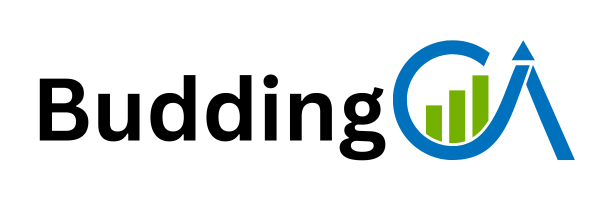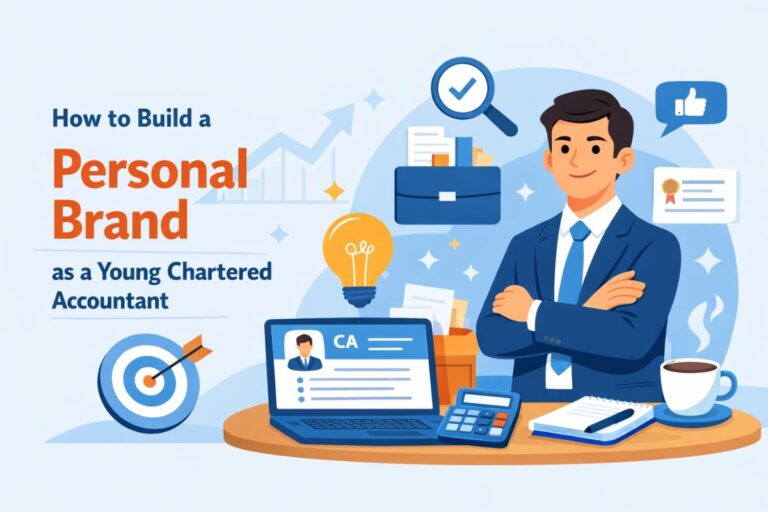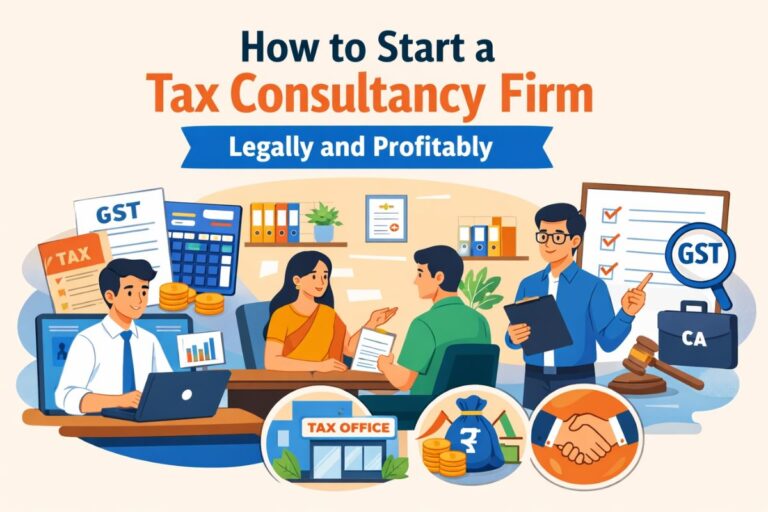Interviews are an essential part of every professional journey, especially for CA students and Chartered Accountants (CAs). Whether you are fresh out of college or a seasoned professional seeking career advancement, performing well in interviews can open doors to new opportunities. In this guide, we will break down the key steps and strategies that will help you succeed in interviews, giving you the confidence and skills to present your best self.
This article will cover essential aspects such as mindset, preparation, communication skills, and how to handle common interview questions, with a specific focus on the needs of CA students and professionals in India.
Adopt the Right Mindset for Success
Interviews as Conversations, Not Examinations
Many CA students, especially those new to the professional world, often treat interviews like high-stakes examinations. They assume that the interviewer’s goal is to expose their weaknesses or flaws. However, interviews are much more than a test of your knowledge—they are conversations.
- Shift Your Perspective: Instead of thinking of the interview as a judgement of your skills, view it as an opportunity to have a discussion. Interviewers are not looking to catch you off guard but are interested in your strengths and how you can contribute to the organisation.
- Focus on Sharing Experiences: Your aim should be to share how you have successfully handled challenges in the past and how you can bring value to the company, rather than stressing over every detail.
Embrace a Growth Mindset
A growth mindset is essential for success in interviews. Instead of fearing failure, embrace the belief that you can always improve, no matter how many interviews you attend.
- View Each Interview as a Learning Experience: Even if you do not get the job, each interview is an opportunity to learn. Reflect on what went well and areas that could be improved.
- Seek Constructive Feedback: Always ask for feedback after interviews—this will help you identify areas where you can refine your skills.
Build Confidence
Confidence is key in any interview. The more confident you are, the better you will be able to handle difficult questions and showcase your strengths.
- Preparation Leads to Confidence: The more you prepare, the more confident you will feel. Preparation includes knowing the company, the role, and understanding how your skills align with what they are looking for.
- Believe in Your Abilities: Remember that your worth is not defined by one interview. Keep in mind that you bring value to the table, and it is up to you to convey that during the interview.
Thorough Preparation: The Key to Success
Know Yourself
Understanding your own strengths, experiences, and skills is the first step to preparing for an interview.
- Identify Your Strengths and Achievements: As a CA student or professional, you have likely completed rigorous coursework, internships, and gained significant practical experience. Reflect on your accomplishments—whether it’s handling a complex audit, leading a financial analysis project, or successfully managing clients.
- Prepare Your Success Stories: Think about situations where you faced challenges and how you overcame them. Use the STAR method (Situation, Task, Action, Result) to structure these stories so that they are clear and compelling.
Research the Organisation
You need to show that you are genuinely interested in the company you are applying to. A lack of knowledge about the organisation can be a major turn-off for interviewers.
- Company History and Values: Look into the company’s history, mission, and core values. Understand their industry position, recent accomplishments, and strategic goals.
- Know the Role: Familiarise yourself with the job description and ensure you understand the responsibilities and expectations. Prepare to explain how your skills match the role and how you can contribute to the company’s success.
- Understand Industry Trends: Stay updated on the latest trends and developments in the accounting and finance sectors. For instance, you should be aware of new tax laws, accounting standards, and the growing role of automation in auditing and accounting.
Prepare Your CV and Cover Letter
Your resume (CV) and cover letter serve as the first impression. They should reflect your capabilities and potential.
- Tailor Your Documents: Customise your CV and cover letter for each job application. Focus on highlighting your relevant experience, skills, and qualifications.
- Keep it Concise and Professional: Ensure that your CV is well-organised and free of errors. Include your academic achievements, professional certifications, and any hands-on experience such as internships or part-time work in a CA firm.
- Be Honest and Clear: Avoid exaggerating your accomplishments or skills. Employers appreciate authenticity, and honesty will help you build trust from the start.
Communication Skills: The Art of Presenting Yourself
Clear and Effective Communication
As a CA student or professional, your ability to communicate clearly is just as important as your technical knowledge. You will often need to explain complex financial concepts to clients, colleagues, or superiors, so honing your communication skills is essential.
- Practice Clear Articulation: Practice explaining accounting terms and financial concepts in a way that anyone can understand, even those without a financial background. This demonstrates your ability to communicate complex ideas concisely.
- Avoid Overloading with Jargon: While you may be familiar with industry-specific terminology, remember that interviewers may not always be experts in the field. Strike a balance between technical language and plain, clear language.
Active Listening
Being an active listener shows that you are engaged and that you respect the interviewer’s perspective. It also helps you tailor your responses more effectively.
- Listen Carefully to the Question: Before answering, make sure you understand what is being asked. If you need clarification, don’t hesitate to ask.
- Show Engagement: Nod or provide brief affirmations during the conversation to show you are actively listening. This also ensures that the interviewer feels heard and respected.
Body Language and Non-Verbal Communication
Your body language can significantly impact how your message is received. Non-verbal cues such as posture, gestures, and facial expressions play a big role in how confident and professional you appear.
- Maintain Good Posture: Sit up straight with your shoulders back. This shows confidence and professionalism.
- Eye Contact: Maintain appropriate eye contact to show attentiveness and sincerity.
- Smile and Stay Calm: A genuine smile helps establish rapport and conveys friendliness. Avoid fidgeting, as it can signal nervousness.
Handling Common Interview Questions
Behavioural Questions
Behavioural questions are designed to assess how you’ve handled situations in the past and predict how you will react in the future. The STAR method is an effective way to structure your answers.
- Example Question: “Tell me about a time when you had to manage multiple deadlines. How did you handle it?”
- Response Using STAR:
- Situation: “During my internship at a CA firm, I was responsible for preparing multiple tax returns, all due within a week.”
- Task: “I had to manage my time efficiently and ensure the accuracy of the returns while meeting the deadlines.”
- Action: “I created a detailed schedule, prioritised tasks based on urgency, and communicated with my supervisor regularly to ensure everything was on track.”
- Result: “As a result, I successfully completed all tasks on time, with no errors, and received positive feedback from my supervisor.”
Technical Questions
As a CA student or professional, expect technical questions related to accounting, auditing, taxation, or other areas of expertise. Be prepared to answer questions about current regulations, financial reporting standards, or industry-specific challenges.
- Example Question: “How would you handle an audit of a company’s inventory?”
- Response: Explain the standard procedures involved in auditing inventory, such as conducting physical verification, ensuring proper documentation, and checking compliance with accounting standards.
Personal Questions
Interviewers often ask personal questions to understand your motivations, work ethic, and personality. Be ready to discuss your long-term career goals and why you are interested in the role.
- Example Question: “Why did you choose to pursue a career in Chartered Accountancy?”
- Response: “I have always been interested in finance and problem-solving. The CA profession offers opportunities for both analytical work and client interaction, which I find very fulfilling.”
Post-Interview: The Follow-Up
Send a Thank-You Note
After the interview, send a thank-you email within 24 hours. A well-crafted thank-you note not only expresses gratitude but also reiterates your interest in the role.
- Be Professional: Express appreciation for the opportunity, mention a key point from the interview, and restate your enthusiasm for the role.
- Example: “Thank you for taking the time to interview me. I enjoyed our discussion about the company’s growth plans and how my experience aligns with your needs. I look forward to the possibility of contributing to your team.”
Reflect and Improve
After each interview, take some time to reflect on your performance. Note the questions you found difficult and work on improving your responses. This reflection will help you in future interviews.
- Seek Feedback: If you don’t get the job, politely ask for feedback on how you performed. This can help you improve your interview skills for the next opportunity.
Special Tips for CA Students and CAs
As a CA, it’s crucial to stay updated on industry changes, including tax laws, auditing standards, and other financial regulations. This will ensure that you remain competitive in the job market.
While technical expertise is important, employers are also looking for professionals who have strong interpersonal and communication skills. Show how you’ve worked as part of a team, demonstrated leadership, or resolved conflicts in the workplace.
As you progress in your career, consider specialising in a niche area such as forensic accounting, tax consulting, or corporate finance. Specialising in a field can set you apart and open doors to higher-paying roles.
Conclusion
Succeeding in interviews is not just about technical knowledge; it’s about presenting yourself as a well-rounded professional who can add value to the organisation. For CA students and practising Chartered Accountants, preparation is key—understand the company, know your strengths, communicate clearly, and embrace a growth mindset. Every interview is a learning opportunity, and by consistently improving your skills, you can ensure long-term success in your career. Remember, confidence, preparation, and effective communication are your best tools to excel in any interview.
Calling all CA dreamers!
🔴 Are you tired of searching for the perfect articelship or job?
Well, fear no more! With 10K+ students and professionals already on board, you don't want to be left behind. Be a part of the biggest community around! Join the most reliable and fastest-growing community out there! ❤️
And guess what? It’s FREE 🤑
✅ Join our WhatsApp Group (Click Here) and Telegram Channel (Click Here) today for instant updates.




